Table Of Content
- Understanding Your Camping Needs
- Consider Tent Size and Capacity
- Types of Camping Tents
- Seasonality and Weather Considerations
- Materials and Durability
- Setting Up and Portability
- Additional Features to Look For
- Consider Tent Size and Capacity
- Understanding Your Camping Needs
- Types of Camping Tents
- Seasonality and Weather Considerations
- Materials and Durability
- Setting Up and Portability
- Additional Features to Look For
- Types of Camping Tents
- Understanding Your Camping Needs
- Consider Tent Size and Capacity
- Types of Camping Tents
- Seasonality and Weather Considerations
- Materials and Durability
- Setting Up and Portability
- Additional Features to Look For
- Seasonality and Weather Considerations
- Being Prepared for Nature’s Surprises
- Factors to Consider
- Choosing the Right Tent
- Checking Weather Ratings and Features
- Materials and Durability
- Quality Materials for Long-Lasting Tents
- Factors Impacting Durability
- Choosing a Weather-Resistant Tent
- Setting Up and Portability
- Quick and Easy Set-Up
- Compact and Lightsetup Design
- Portability Features to Consider
- Weather Resistance and Durability
- Additional Features to Look For
- Interior Storage Pockets
- Ventilation and Airflow
- Built-in Lights
- Gear Lofts and Hooks
- Frequently Asked Questions (FAQs)
- Q: How do I choose the perfect tent for camping?
- Q: What are some tips for selecting the best camping tent?
- Q: How do I know which size of tent to choose?
- Q: What is the importance of tent seasonality?
- Q: Why is the material of the tent important?
- Q: How can I ensure the tent is easily set up?
Welcome, outdoor enthusiasts and adventurers! As an expert in camping gear and equipment, I understand the importance of choosing the perfect tent for outdoor excursions. Your tent is your home away from home, providing shelter, comfort, and protection as you immerse yourself in the beauty of nature. This comprehensive tent guide will explore the essential factors to consider when selecting the best camping tent.
When finding the best camping tent, remember a few key considerations. Whether you’re a seasoned camper or new to outdoor exploration, the right tent can make all the difference in your camping experience. From size and design to weather resistance and ease of setup, each factor determines the ideal tent for your adventures.
With many options available on the market, navigating the world of camping tents can be overwhelming. Fear not! Our tent selection tips will help you decide and find the perfect tent that meets your requirements. So, grab your gear, lace up your hiking boots, and embark on the journey to discover the best camping tent for your next outdoor escapade.
Join us as we explore the ins and outs of choosing the perfect tent, equipping you with the knowledge and expertise to make a well-informed decision. Your home in the great outdoors awaits – let’s find the best camping tent that suits your adventurous spirit and ensures a memorable camping experience!
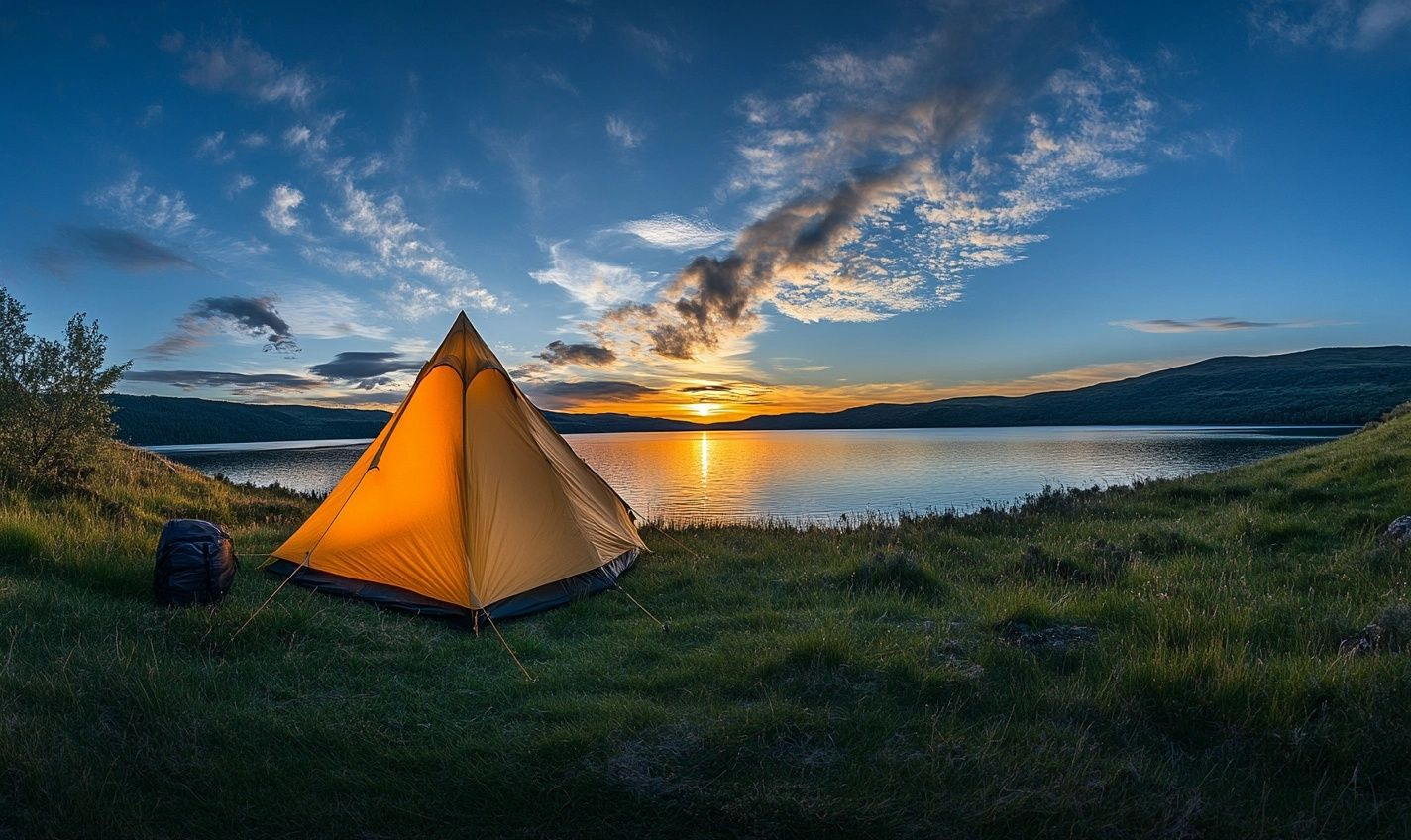
Understanding Your Camping Needs
Embarking on a camping adventure is an exhilarating experience, but selecting the perfect tent is essential for a comfortable and enjoyable trip. With many options available, how do you determine which is best?
Consider Tent Size and Capacity
The first step in your tent guide is to assess your group size. Are you camping solo, with a partner, or with a large family? Choose a tent that provides ample space for everyone to sleep comfortably.
Types of Camping Tents
When it comes to selecting the best camping tent, consider the different types available:
- Traditional dome tents
- Cabin tents for more prominent groups
- Backpacking tents for lightweight travel
Seasonality and Weather Considerations
Think about the weather conditions you may encounter. Will you be camping in the summer heat or braving chilly autumn nights? Choose a tent with appropriate ventilation and insulation to suit the climate.
Materials and Durability
Invest in a high-quality, weather-resistant tent. Ensure it is sturdy enough to withstand various elements, from rain and wind to UV rays. A durable tent will last for many camping trips.
Setting Up and Portability
Consider how easy it is to set up and take down your tent. Look for features like color-coded poles and simple assembly instructions. Additionally, choose a lightweight and compact tent for easy transportation.
Additional Features to Look For
When choosing the perfect tent, look for these additional features:
- Waterproof coatings
- Built-in storage pockets
- Bug screens
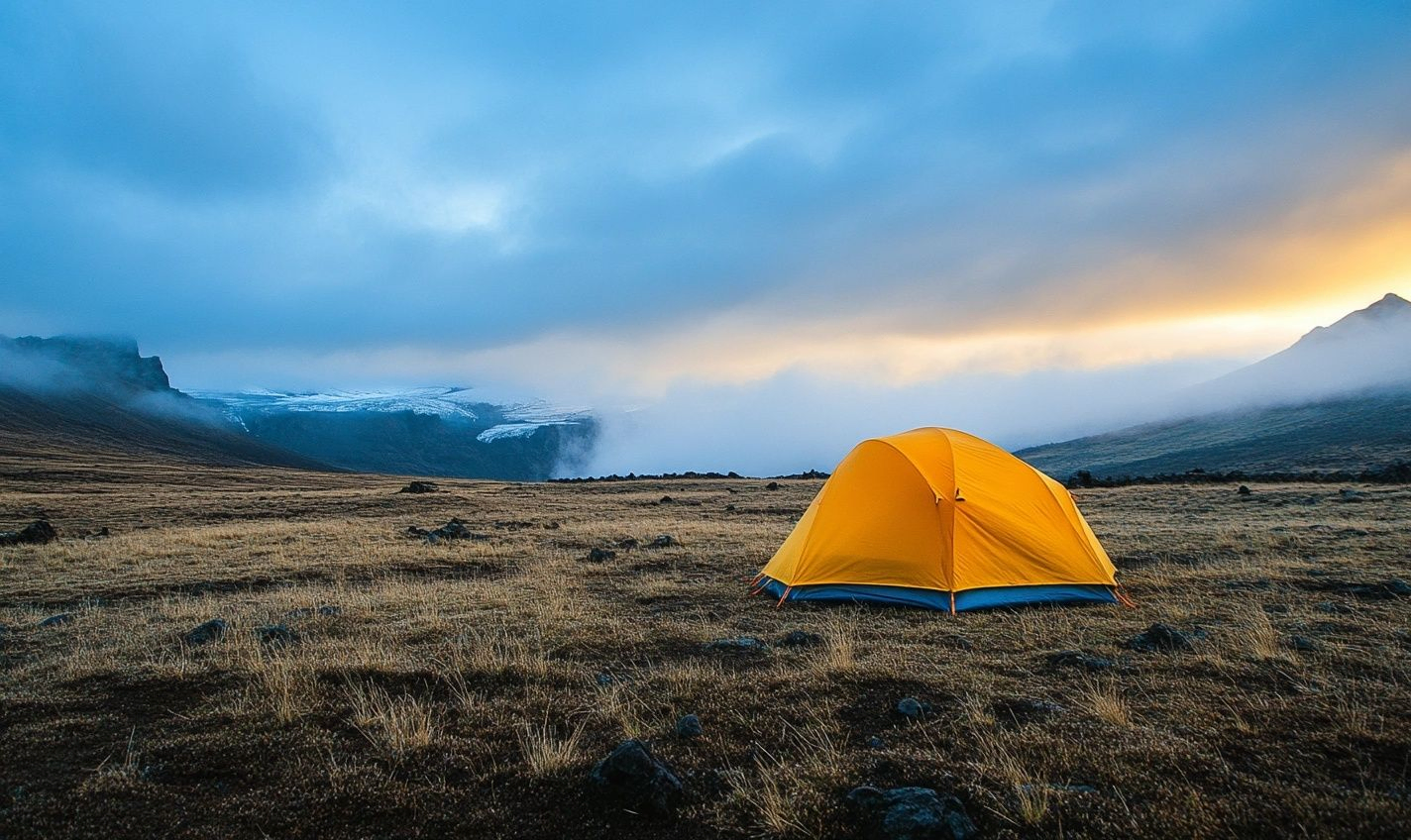
Consider Tent Size and Capacity
When choosing the perfect tent for your camping adventures, one of the most crucial factors to consider is the size and capacity of the tent. Here are some tips on how to make the right choice:
Understanding Your Camping Needs
Before selecting a tent, consider how many people will sleep in it and what gear you need to store inside. Also, consider whether you prefer a cozy fit or more room to move around.
Types of Camping Tents
Various types of tents are available, from dome to cabin tents. Dome tents are lighter and more portable, while cabin tents offer more headroom and space.
Seasonality and Weather Considerations
Think about the seasons and weather conditions you will be camping in. If you plan to camp in diverse conditions, ensure your tent is designed to withstand rain, wind, or snow.
And what about ventilation? You don’t want to be sweating in your tent on a humid summer night, do you?
Materials and Durability
Check the materials used in the tent’s construction. Look for robust, waterproof fabrics to endure different terrains and weather conditions. The last thing you want is a leaky tent ruining your camping trip.
- Consider the denier rating of the tent fabric for durability.
- Look for taped seams to prevent water seepage.
- Choose a tent with a sturdy frame for stability in windy conditions.
Setting Up and Portability
How easy is the tent to set up and take down? Nobody wants to spend hours struggling with tent poles and stakes. Opt for a tent that is user-friendly and comes with clear setup instructions.
And remember, the setup tent will be your home away from home, so consider its weight and size when packed. It should be portable enough for your camping style.
Additional Features to Look For
Look for tents with additional features that enhance your camping experience. Consider features like built-in storage pockets, room dividers for privacy, or a vestibule for storing gear.
Remember the importance of a good rainfly. Protect yourself from the elements and enjoy a comfortable night under the stars.
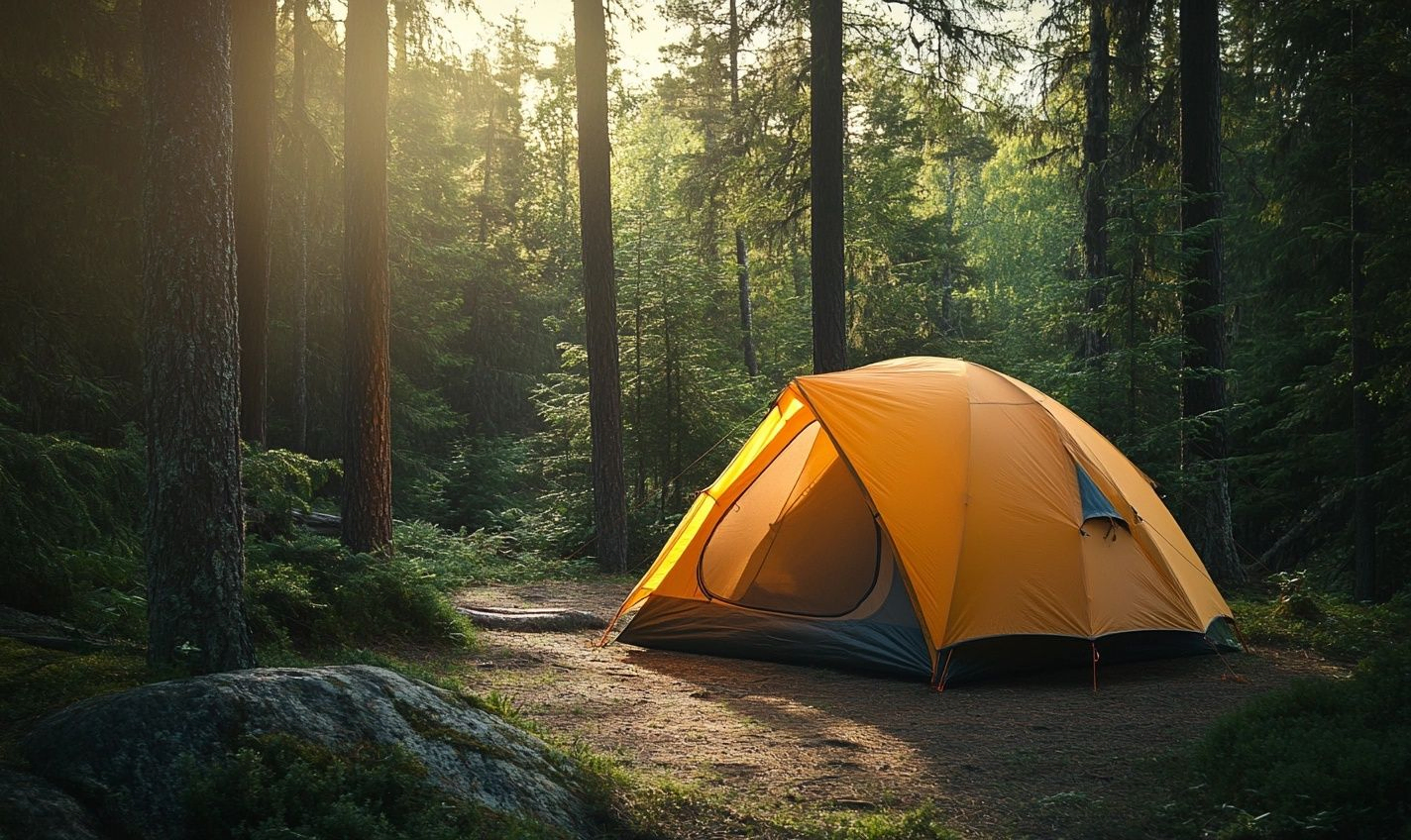
Types of Camping Tents
Choosing the perfect tent is crucial if you’re gearing up for a camping adventure. With so many options on the market, finding the best tent for your needs can be overwhelming. Let’s explore the different types of camping tents.
Understanding Your Camping Needs
When selecting a tent, consider the number of people, the season you’ll be camping in, and the terrain you’ll be setting up on. Essential gear varies considerably based on these factors.
Consider Tent Size and Capacity
Choosing the right tent size is vital for a comfortable camping experience. Ensure the tent’s capacity matches the number of campers and their gear. Adequate space is essential for a good night’s sleep under the stars.
Types of Camping Tents
There are several types of camping tents to choose from, each offering unique features to enhance your outdoor experience:
– Dome Tents: Easy to set up and great for beginners, offering good headroom.
– Cabin Tents: Ideal for family camping trips with ample space for multiple sleepers.
– Backpacking Tents: Lightweight and compact, perfect for hikers and backpackers.
– Pop-Up Tents: Instant setup for quick camping trips or setupvals.
Seasonality and Weather Considerations
Consider the season and weather conditions you’ll be camping in. Look for tents designed for specific seasons to ensure comfort and protection against the elements.
Materials and Durability
The durability of your tent is crucial for long-term use. Opt for tents made of high-quality materials like ripstop nylon or polyester for enhanced durability and weather resistance.
Setting Up and Portability
Choose a tent that is easy to set up, especially if you’re a solo camper. Look for features like color-coded poles or instant setup mechanisms for hassle-free setup. Portability is also essential for ease of transportation.
Additional Features to Look For
– Ventilation: Proper airflow to prevent condensation buildup.
– Storage Pockets: Keep your gear organized inside the tent.
– Rainfly: Waterproof protection during rainy weather.
By considering these factors and exploring the different types of camping tents, you can find the best tent to suit your needs and ensure a comfortable outdoor experience.
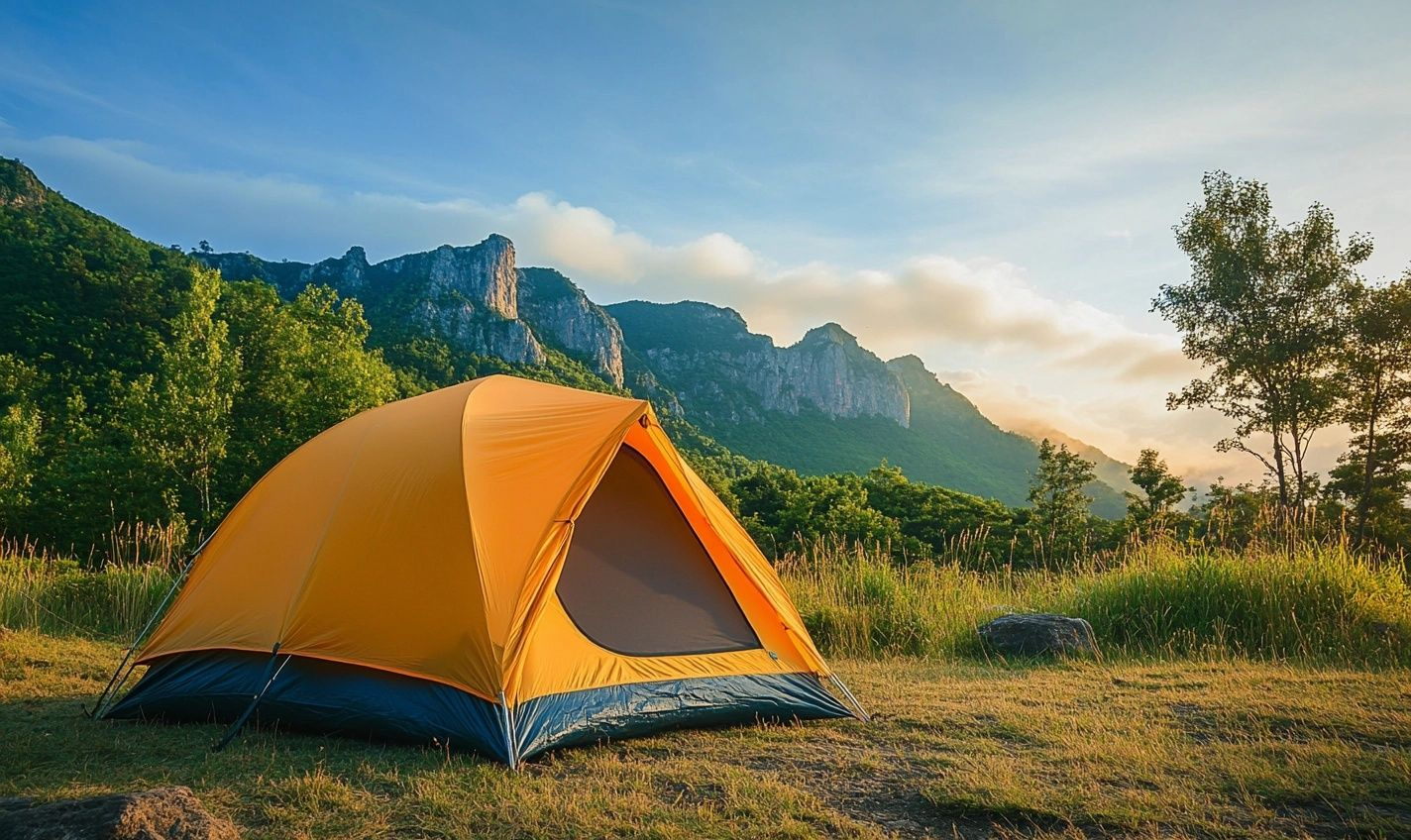
Seasonality and Weather Considerations
Being Prepared for Nature’s Surprises
When you’re out outdoors, you never know what kind of weather Mother Nature might throw at you. That’s why choosing the right tent for the season and weather conditions is crucial for a comfortable camping experience.
Factors to Consider:
- Seasonality: Are you camping in the summer heat or the chilly winter?
- Weather Resistance: Does the tent protect from rain, wind, and extreme temperatures?
- Ventilation: Is the tent well-ventilated to prevent condensation buildup?
Choosing the Right Tent:
Remember that not all tents are equal when considering seasonality and weather conditions. Here are some tips to help you pick the perfect tent:
- Three-Season Tents: These tents are ideal for spring, summer, and fall camping. They offer good ventilation but may not withstand harsher conditions.
- Four-Season Tents: These tents are designed for winter camping and have sturdy construction to handle snow and wind. They provide better insulation but may lack ventilation in hotter months.
- All-Season Tents: Versatile options that balance ventilation and weather resistance for year-round use in moderate conditions.
To make an informed decision, consider the primary purpose of your camping trips and the typical weather patterns in your area.
Checking Weather Ratings and Features
Before purchasing a tent, pay attention to its weather ratings and features:
- Hydrostatic Head: Indicates the tent’s waterproofing capability. Look for a higher rating for better rain protection.
- Wind Resistance: Check if the tent can withstand strong winds without collapsing.
- Seasonal Design: Ensure the tent’s features align with the weather conditions you’ll be facing.
Considering these aspects, you’ll be well-equipped to choose a tent that can provide a cozy shelter no matter what nature has in store for your camping adventure.
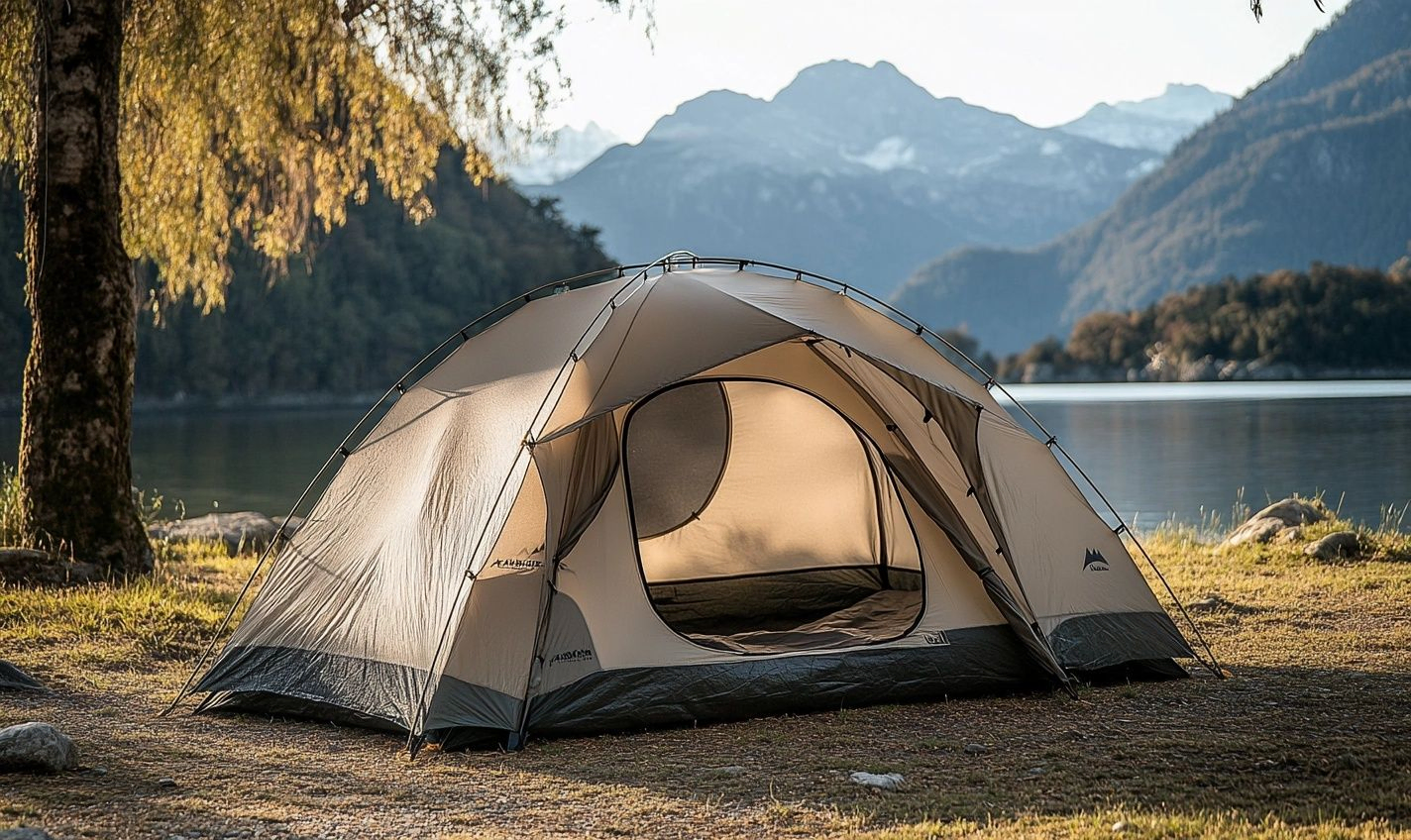
Materials and Durability
When choosing the perfect tent, the materials used in its construction play a crucial role in its durability and performance. Understanding the different material options can help you decide when to choose the best camping tent for your outdoor adventures.
Quality Materials for Long-Lasting Tents
Investing in a tent made of high-quality materials ensures that it will withstand various weather conditions and last for many seasons of use. Here are some common tent materials to consider:
- Nylon: Lightweight and durable, ideal for backpacking tents
- Polyester: Resistant to UV rays and water, great for all-weather camping
- Cotton Canvas: Breathable and insulating, perfect for extended camping trips
Factors Impacting Durability
Factors such as stitching, zippers, and pole material also contribute to a tent’s overall durability. For strength and longevity, look for reinforced stitching, high-quality zippers, and sturdy aluminum poles.
Choosing a Weather-Resistant Tent
When considering materials for your tent, consider the weather conditions you will likely encounter during your camping trips. Opt for a tent with a high waterproof rating and good ventilation to keep you dry and comfortable in rainy or humid conditions.
Additionally, selecting a tent with a durable floor material is essential to prevent punctures and tears, especially when camping on rough terrain.
Remember, the materials used in your tent directly impact its durability, performance, and overall camping experience. By paying attention to the quality of materials and construction details, you can ensure that your tent will be a reliable shelter on all your outdoor escapades.
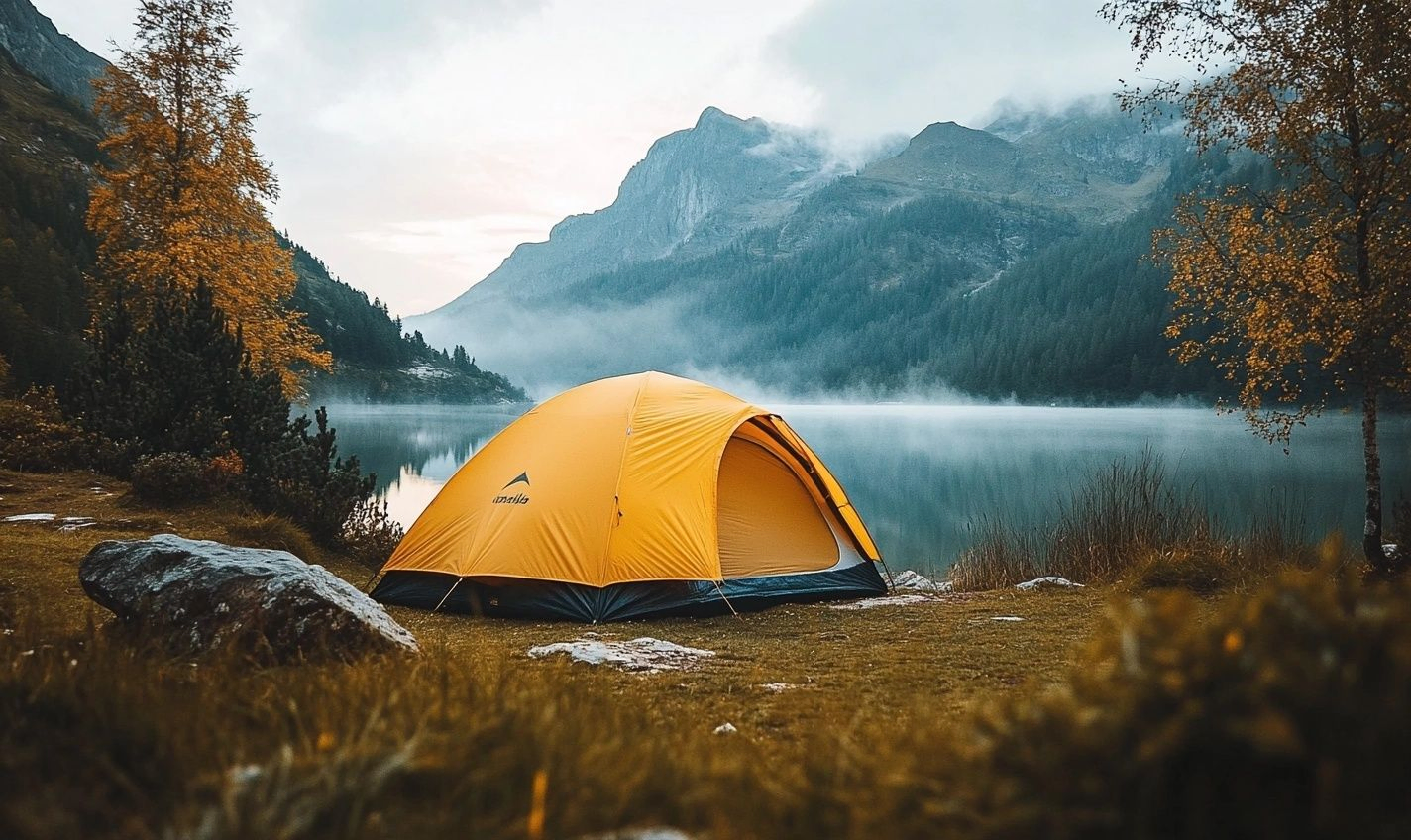
Setting Up and Portability
Setting up and portability are key factors when choosing the perfect tent for your camping adventure. You want a tent that is easy to set up, pack, and carry around. Here are some tips to guide you in this aspect:
Quick and Easy Set-Up:
And let’s face it, nobodySetup to spend hours struggling with tent poles and instructions when they could be out enjoying nature. Look for a camping tent that offers a quick and easy set-up process.
Compact and Lightsetup Design:
You also don’t want to carry a heavy and bulky tent while hiking to your campsite. Opt for a tent that is compact and lightweight for effortless carrying.
Portability Features to Consider:
- Carry Bag: A durable carry bag makes transporting your tent a breeze.
- Integrated Storage Pockets: Convenient pockets for storing tent essentials.
- Backpack Straps: Ideal for hands-free carrying on hiking trips.
Weather Resistance and Durability:
And remember, while focusing on portability, do not compromise on the tent’s weather resistance and durability. You want a tent that can stand firm against rain, wind, and harsh weather conditions.
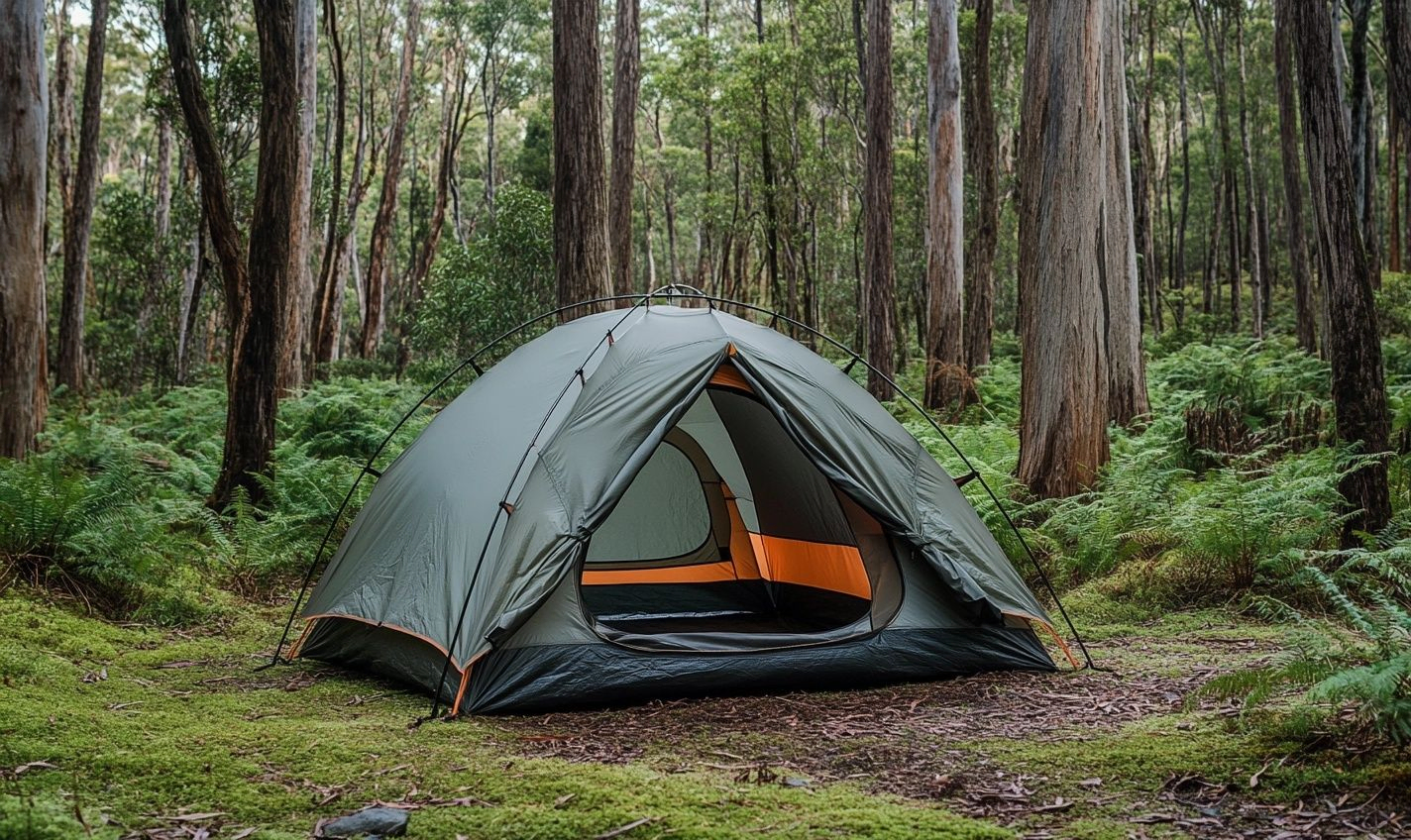
Additional Features to Look For
As you continue to find the best camping tent that fits your needs, don’t overlook the importance of considering additional features. These extras can elevate your camping experience and make your tent a home away from home.
Interior Storage Pockets
Look for tents with interior storage pockets to keep your essentials organized and within reach. These pockets are perfect for storing small items like phones, flashlights, and keys, helping you stay organized during your trip.
Ventilation and Airflow
Ventilation is crucial to ensure a comfortable sleep environment inside your tent. Opt for tents with mesh windows and vents to promote airflow and prevent condensation buildup, especially in humid or rainy conditions.
Built-in Lights
Some modern camping tents have built-in LED lights illuminating the interior, providing convenience during nighttime activities. These lights eliminate the need for bulky lanterns and create a cozy atmosphere inside the tent.
Gear Lofts and Hooks
Gear lofts and hooks offer additional space to store gear off the ground, maximizing the usable floor space inside your tent. These features are ideal for hanging lights, drying clothes, or keeping essentials within easy reach.
Remember to consider the overall quality and craftsmanship of the tent. Durability is key to ensuring your shelter withstands various outdoor elements. Look for reputable brands that prioritize sturdy materials and excellent construction.
Remember, your camping tent is your sanctuary in the wilderness, your reliable companion that safeguards you from the elements and provides a cozy retreat after a day of adventures. So, choose wisely and prioritize features that enhance your overall camping experience.
Conclusion
After delving into the world of tent selection, it’s clear that choosing the perfect tent goes beyond just picking the first one you see. Size, seasonality, material, and design are crucial in ensuring a comfortable and enjoyable camping experience. Following these tent selection tips, you can make a well-informed decision that suits your needs and preferences.
Remember, the best camping tent for one person may not be the best for another. When choosing, consider your camping style, the number of people using the tent, weather conditions, and transportation needs. Whether you opt for a spacious family tent, a lightweight backpacking tent, or a versatile 3-season tent, the key is to select one that meets your requirements.
Investing in a high-quality tent is crucial for a successful camping trip. It provides shelter, protection, and a cozy place to rest. With the right tent, you can enjoy the serenity of the outdoors without compromising on comfort. So, take your time, compare different options, and choose a tent that aligns with your camping goals and budget.
With the tent guide as your companion, you’re now equipped with the knowledge needed to decide on selecting the best camping tent for your adventures. Happy camping!
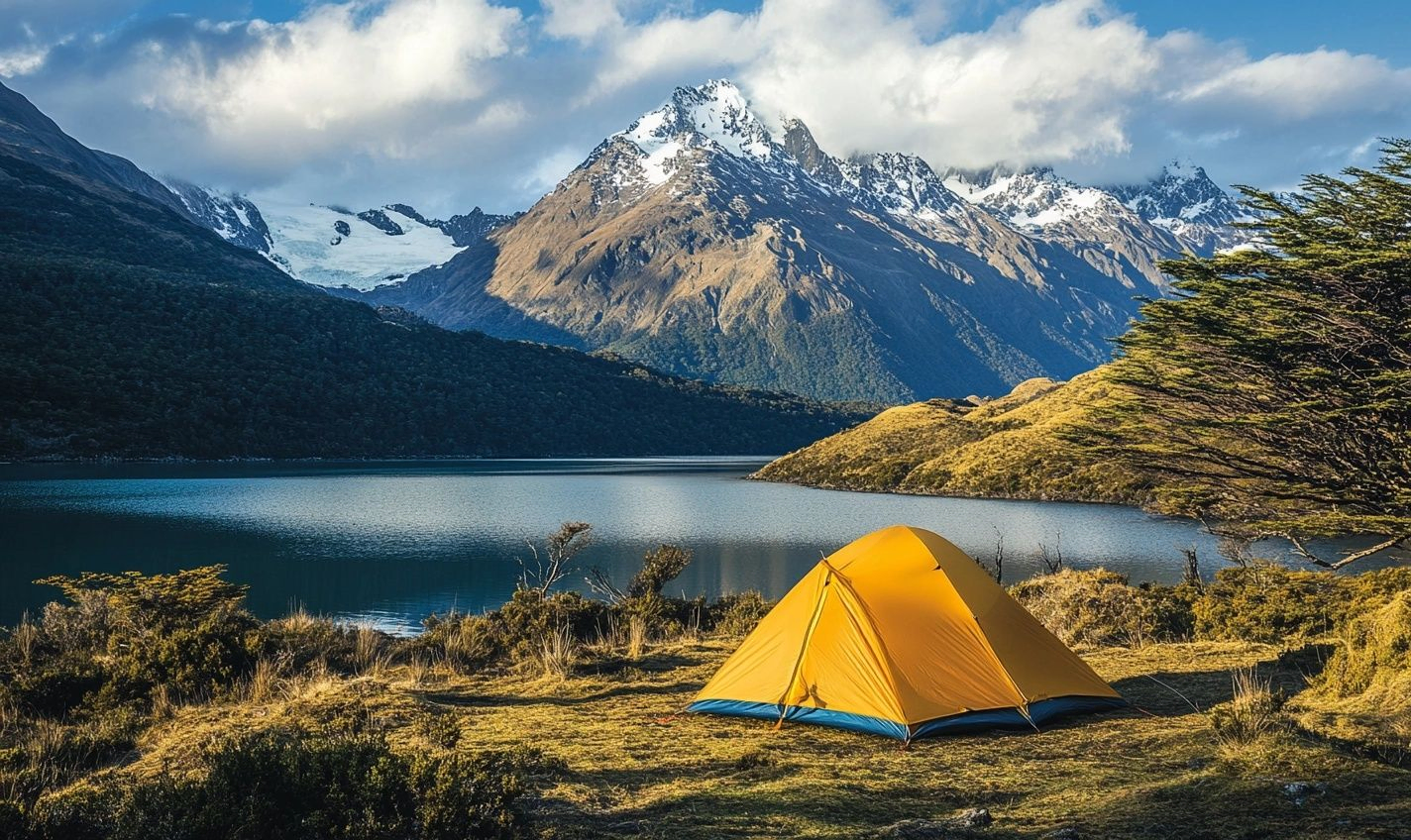

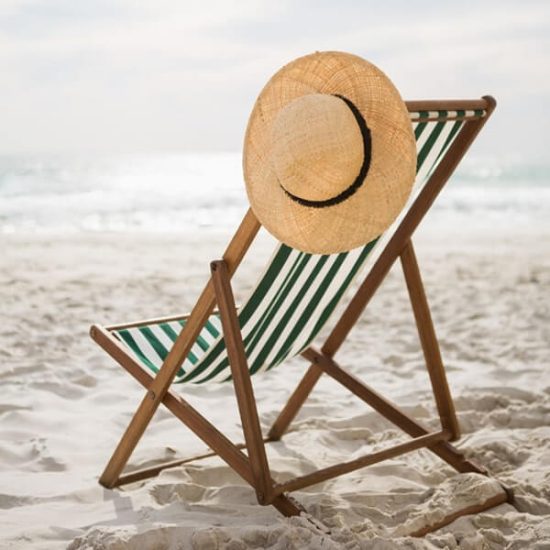




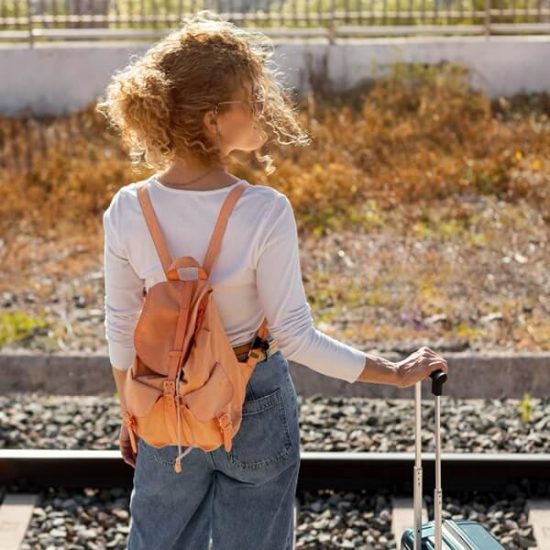
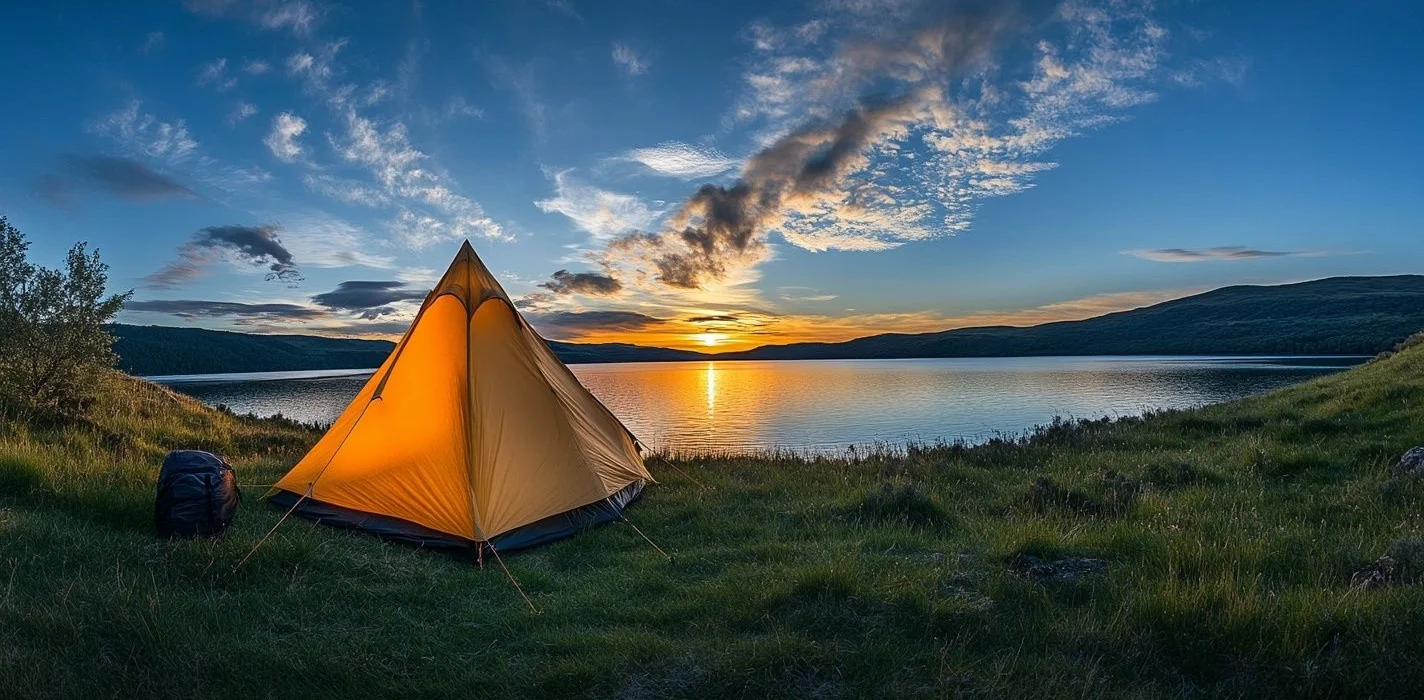
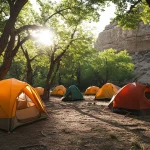
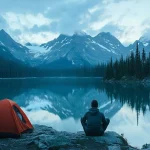
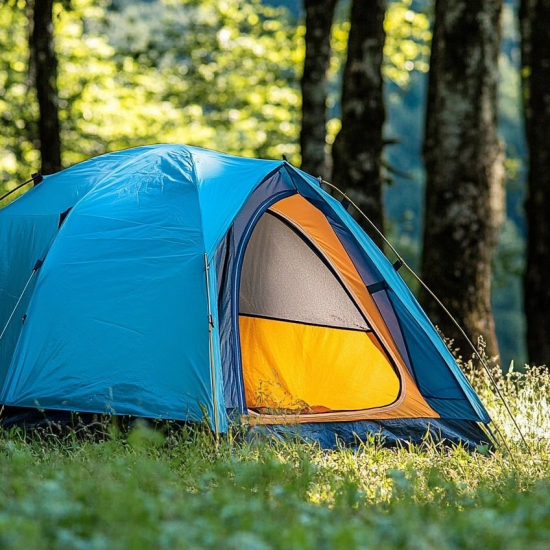
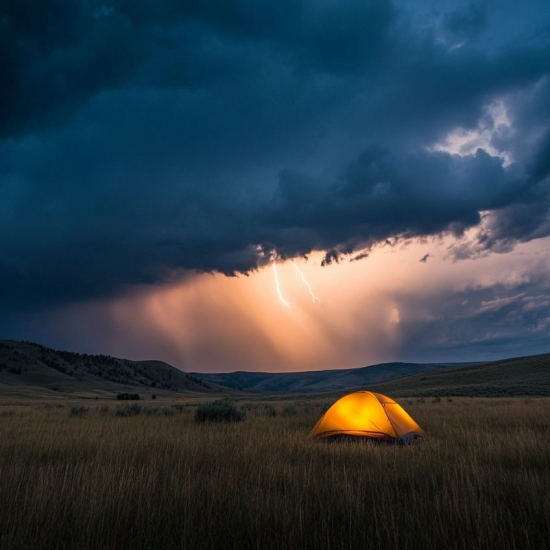

No Comment! Be the first one.